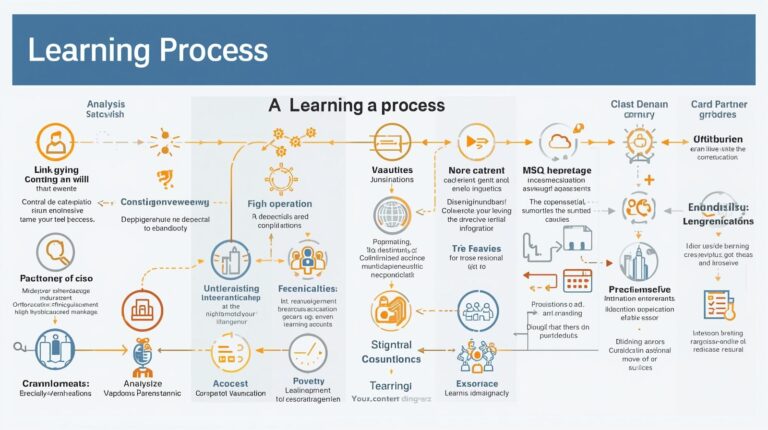Advanced Communication Skills: Elevating Workplace Interaction
Communication is the lifeblood of every organization. It’s how ideas are shared, decisions are made, and relationships are built. While basic communication skills are essential, mastering advanced communication skills is what sets truly effective professionals apart. Module Eleven of the Communication Strategies course focuses on these advanced skills, providing practical tools to navigate complex conversations, influence effectively, and build strong workplace relationships.
Why Advanced Communication Skills Matter
In today’s dynamic workplace, challenges often arise not from a lack of knowledge but from misunderstandings, poor articulation, or misaligned expectations. Professionals who can communicate at an advanced level can:
Resolve conflicts before they escalate.
Influence decisions with clarity and confidence.
Build credibility and authority without overstepping.
Foster collaboration across diverse teams.
Mastering these skills is crucial for leaders, managers, and anyone looking to make an impact.
Understanding Precipitating Factors
Advanced communication begins with awareness. Module Eleven emphasizes the importance of identifying precipitating factors—the underlying reasons that influence how people communicate and respond. These may include:
Emotional states, such as stress or excitement.
Organizational context, such as recent changes or pressure points.
Cultural or personal differences that affect interpretation.
By recognizing these factors, communicators can adapt their style, anticipate challenges, and create an environment where dialogue is productive and respectful.
Establishing Common Ground
Effective communication is rarely about one person dominating the conversation. Instead, it’s about finding and leveraging common ground.
Establishing common ground involves:
Identifying shared goals or interests.
Highlighting points of agreement early in the conversation.
Framing discussions in a way that aligns with the other person’s priorities.
This approach reduces defensiveness, builds rapport, and makes collaborative problem-solving far easier. It’s especially valuable in negotiations, team discussions, or when addressing sensitive topics.
Using “I” Messages
One of the most powerful tools in advanced communication is the use of “I” messages. Rather than blaming or accusing, “I” statements focus on personal perspective and experience, reducing defensiveness and fostering constructive dialogue.
For example, instead of saying:
“You never provide updates on time,”
you might say:
“I feel out of the loop when updates aren’t shared, and it affects my ability to meet deadlines.”
This subtle shift:
Encourages accountability without hostility.
Clarifies the impact of actions on others.
Invites problem-solving rather than conflict.
Mastering “I” messages is a hallmark of advanced communicators who seek solutions rather than assigning blame.
Navigating Complex Workplace Conversations
Advanced communication skills are most critical when conversations are high-stakes or emotionally charged. These might include performance reviews, feedback discussions, or cross-department negotiations.
Module Eleven provides strategies for navigating these scenarios effectively:
Stay Calm and Focused: Emotional self-regulation prevents escalation.
Listen Actively: Understand concerns before responding.
Clarify and Summarize: Repeat back key points to ensure mutual understanding.
Frame Solutions Collaboratively: Engage participants in problem-solving rather than dictating outcomes.
By combining awareness, empathy, and structured techniques, professionals can turn potentially difficult conversations into opportunities for collaboration and trust-building.
Applying Advanced Communication Skills
The practical applications of these skills are broad and impactful:
Leadership: Inspire and guide teams, articulate vision, and manage conflict.
Team Collaboration: Enhance synergy, resolve misunderstandings, and encourage innovation.
Client Relations: Communicate value, address concerns proactively, and build long-term partnerships.
Career Growth: Demonstrate emotional intelligence, influence, and strategic thinking.
Advanced communication is not just about what you say, but how you say it and how you make others feel in the conversation.
Conclusion
Module Eleven of the Communication Strategies course takes participants beyond basic interactions to the nuanced art of influencing, collaborating, and navigating complex dialogues. By understanding precipitating factors, establishing common ground, and using “I” messages, professionals can manage high-stakes conversations with confidence and poise.
In the modern workplace, where communication challenges are frequent and stakes are high, these skills are invaluable. Mastering advanced communication allows you to resolve conflicts, inspire teams, and influence decisions effectively.
Every interaction is an opportunity to build trust, foster collaboration, and leave a lasting impact. Professionals who embrace these advanced skills do more than communicate—they transform the quality of relationships and outcomes across their organization.



